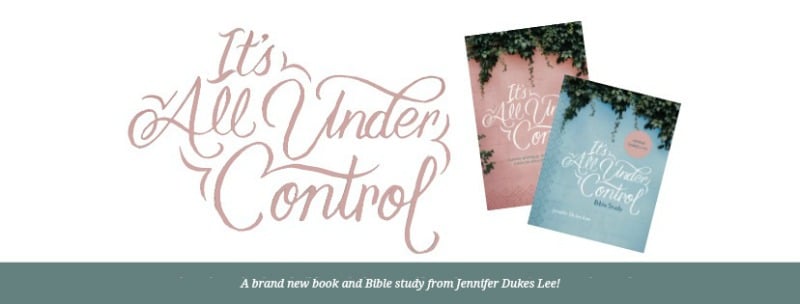In Which We Have a Talk about Feminism
I’m going to tell you something about my past that might surprise you, … and it feels sort of scary to share it.
But I think it’s important for you to know who I was, who I am, and who I am becoming as a woman and as a sold-out follower of Jesus Christ.
Here goes:
Before I knew Jesus, I knew feminism. Before I was a Christian, I was a hard-core feminist.
I was the kind of third-wave feminist of the 1990s that fought for “reproductive rights” and believed in “girl power.” One of my women’s studies professors spelled women like this – womyn – which I thought was quite clever at the time. I devoured the words of Naomi Wolf and Betty Friedan, and I was one credit shy of a minor in women’s studies.
While a student at college, I wore my feminism on my sleeve – quite literally. I’m not proud to tell you how I wore a T-shirt with these words screen-printed boldly on the front:
no
no
notification
no
no
no
My T-shirt affirmed my position on abortion. I felt that a teenage girl shouldn’t have to “notify” her parents if she wanted an abortion.
This was the feminism of my early adulthood, and it took me many years to unravel myself from teachings that were deeply ingrained and espoused.
I want to be very clear here: Feminism is deeply complex, and it isn’t the enemy. To be sure, feminism has brought well-documented good to our world. If you like to vote, for instance, thank a feminist. If you believe that women ought to get equal pay for equal work, you’ve got something in common with your neighborhood feminist.
But feminism also has a messy side. Feminism was this huge fence between me and Christianity. Professors taught me that Christianity was a patriarchal system that demeaned women.
The message I began to believe was this one: A real feminist could NOT be a Christian.
Then, Jesus. I fell in love with Jesus. Hard.
And based on what I’d spent years studying about feminism, I didn’t think that I could be both a Christian and a feminist – certainly not the brand of feminism that I espoused. The choice was easy.
I dug deep into the Gospels. This is what I discovered: my university professors weren’t fair to my faith, and they weren’t fair to feminism either.
I had been fed a narrow view of both.
Jesus, lover of my soul, taught a different Way. I saw how He treated women. How he loved women, and empowered them, and valued them – in a revolutionary way that rejected cultural expectations of His time. I saw how Jesus stood between a woman and her accusers, stooping down to write in the dust as rocks fell to the ground.
I read how the news of Christ’s resurrection was delivered first to women. The central figure of Christianity did not marginalize or demean women; He affirmed and celebrated them.
Fast-forward to 2013. I’m 41 years old now, and I tossed out my “no notification” T-shirt years ago.
And I have unraveled myself from the feminism of my early adulthood. Yet I’ve learned that I didn’t have to throw out the baby with the bathwater – or in this case, I didn’t have to throw out ALL of feminism with that old T-shirt.
I’ve kept the best and truest parts of feminism – the parts that allow me to celebrate equality, without denying my own femininity.
But I never had a word for who I have become, and who I am becoming.
Sarah blazed onto the publishing scene this year with her new book entitled “Jesus Feminist.” It’s a book with a provocative title, and given my history with feminism, I approached her book with great care and caution … but with great hope. I devoured every word, and I cried when it ended.
I couldn’t stop reading the last line in Sarah’s acknowledgements:
“And Jesus: if I had an alabaster box full of expensive perfume, I would smash it on my front sidewalk. I just want to be with you, walking your way, always.”
Reading the book, I felt a lot of things: I felt like someone had opened a door, inviting women into a beautiful celebration of faith and personhood. I felt affirmed. I felt alive. And mostly, I felt wildly adored by my Savior. I felt my heart beating like this: Jesus … Jesus. .. Jesus.
What’s more, I have finally found a definition for feminism that feels right and true in my heart.
“At the core,” Sarah writes, “feminism simply consist of the radical notion that women are people, too. Feminism only means we champion the dignity, rights, responsibilities, and glories of women as equal in importance – not greater than, but certainly not less than – to those of men, and we refuse discrimination against women.”
So, Ms. Sarah Bessey, I stand with you today. We may not see eye to eye on every fine point of theology, but sister, I thank you. I break an alabaster box next to yours.
And I can, at last, say that I don’t have to choose one or the other: Jesus or feminism.
For I am this:
I am a Bible-believing, sold-out-for-Jesus, evangelical mama and farm wife in Iowa, … and I am a Jesus Feminist.
Jesus Feminist, contrary to its provocative title and subtitle, does not seem to be a book meant to convince the reader of a radical position on gender roles. Instead it seems to be a book intended to point to the character of God, the purpose of His creation, and the journey He takes His children on toward the fullness of His kingdom. Is there a theological bias in the book? Yes, absolutely. Sarah is an egalitarian and believes in roles for men and women without distinction in the Church. But the book does not terminate on her bias, because her true bias is the name and renown of Christ, and a robust Church filled with all kinds of people fully used by Christ. – Lore Ferguson
Have you read “Jesus Feminist”? What does the word “feminist” mean to you?
Subscribe to Top Ten With Jen & Get Freebies
Enter your email to get inspiration delivered straight to your inbox. You will also get immediate access to exclusive FREE resources on my website.



